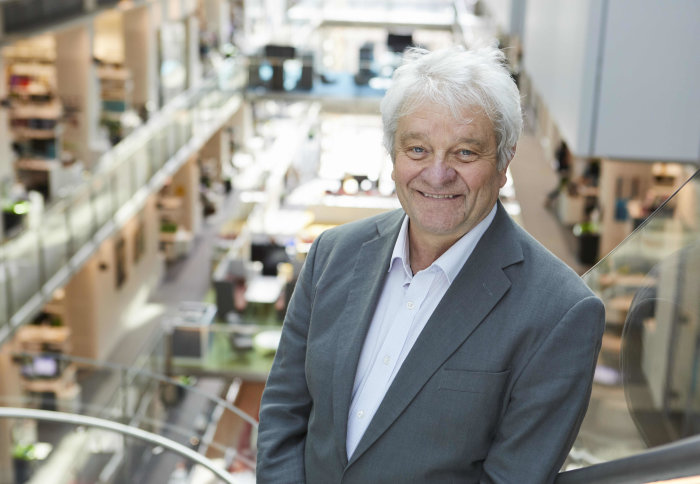Sir Paul Nurse delivers Hammersmith and White City Distinguished Lecture
by Kate Wighton

Sir Paul Nurse, Director of The Francis Crick Institute
Nobel laureate Sir Paul Nurse delivered Imperial's Hammersmith and White City Distinguished Lecture this week.
Addressing an audience which included Imperial President Professor Alice Gast and Professor Sir Magdi Yacoub, Sir Paul outlined an intricate picture of life that ranged from life’s basic building blocks to complex biological systems.
We need diversity of thinking in science Sir Paul Nurse Director, The Francis Crick Institute
A leading geneticist and cell biologist, Sir Paul Nurse is Director of The Francis Crick Institute and former President of the Royal Society.
He shared the 2001 Nobel Prize in Physiology or Medicine for the discovery of protein molecules that control the division of cells in the cell cycle.
The lecture was introduced by President Gast, who spoke of the “flourishing life sciences and public health ecosystem that is long-established in Hammersmith, and is now emerging at our new campus in White City”.
Sir Paul then took the audience through five “great ideas in biology” - from cells to information systems - which he said all intertwined to create complex life.
Describing some of the history behind great ideas, Sir Paul discussed the first documented examples of viewing single-celled life, by ‘Father of Microscopy’ Antonie Van Leeuwenhoek. The 17th century scientist reportedly collected a scraping from between his teeth, and then viewed the teeming bacteria under his microscope.
Sir Paul went on to describe other colourful characters in history, including Charles Darwin’s grandfather – Erasmus Darwin, who despite being a doctor was ‘not particular good at curing people’, and cut an oval in his table to enable him to move closer to his food.
Asked what propels advances, Sir Paul ended by stating: “We need diversity of thinking in science.”
Article text (excluding photos or graphics) © Imperial College London.
Photos and graphics subject to third party copyright used with permission or © Imperial College London.
Reporter
Kate Wighton
Communications Division